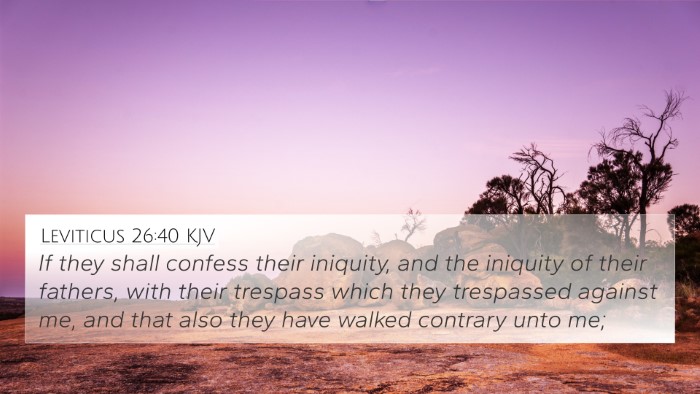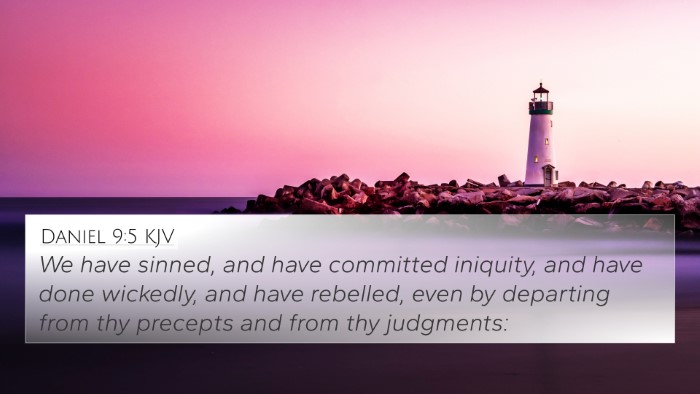Meaning of Nehemiah 9:33
Nehemiah 9:33 states: "However, you are just in all that has come upon us; for you have dealt faithfully, but we have done wickedly."
This verse is part of a larger confession by the people of Israel, acknowledging God's righteousness in their trials and their own unfaithfulness. The poignancy of the passage lies in the recognition of God's consistent justice contrasted with human sinfulness.
Commentary Insights
The commentaries from Matthew Henry, Albert Barnes, and Adam Clarke provide rich insights into this verse, emphasizing several core themes:
-
God's Justice and Faithfulness
As highlighted by Henry, the acknowledgment of God's justice reinforces the understanding that God acts rightly in all His governance. God's actions, whether in blessing or judgment, are framed with a backdrop of faithfulness to His covenant with Israel.
-
Human Unfaithfulness
Barnes notes that this confession of wickedness indicates a profound awareness of moral failure. It is a moment of contrition where the Israelites recognize their historical pattern of turning away from God's commands.
-
The Importance of Confession
Clarke emphasizes the necessity of confession in restoring the relationship with God. When they openly acknowledge their sin, it becomes a means to seek restoration and divine forgiveness.
-
Historical Context
This chapter serves as a historical recounting where the Israelites reflect on their collective sin, a pattern of rebellion from the time of their forefathers, which offers a backdrop for their current plight (Henry).
-
Call to Repentance
The verse calls for the people to turn back to God, emphasizing the hope in repentance that lies at the heart of the Israelite community's cry for mercy (Barnes).
-
The Role of Covenant
Clarke further elaborates on the covenant relationship, noting that God's dealings with Israel highlight the weight of their responsibilities as a chosen people. This underscores the theme of divine expectation from God’s elect.
Cross-References to Explore
The following Bible verses can enhance our understanding by revealing connections between scriptures:
- Daniel 9:7 – Acknowledgment of sin and recognizing God's righteousness.
- Psalm 51:4 – "Against you, you only, have I sinned..." indicates deep personal and collective acknowledgment of sin.
- Lamentations 3:39 – "Why should a living man complain, a man, about the punishment of his sins?" reflects the theme of accepting God’s justice.
- 2 Chronicles 7:14 – A call to humility and seeking God’s face can be seen as a response to the promptings of Nehemiah 9:33.
- Romans 3:23 – "For all have sinned and fall short of the glory of God" echoes the confession theme.
- James 4:10 – "Humble yourselves before the Lord, and he will exalt you," which ties into the importance of humility and confession.
- 1 John 1:9 – "If we confess our sins, he is faithful and just to forgive..." solidifies the belief in God's faithfulness to forgive when we confess.
Conclusion
In contemplating Nehemiah 9:33, we are invited to engage with the broader narrative of the Bible that emphasizes God's justice, human sinfulness, and the hope for redemption through confession and repentance. Exploring the Bible verse cross-references enhances our understanding by illuminating the deep interconnections within Scripture.
Utilizing various tools for Bible cross-referencing can facilitate a more profound study experience by revealing underlying themes and principles that apply to our lives today. Embracing these connections not only enriches our understanding but also draws us closer to the heart of God's message.












